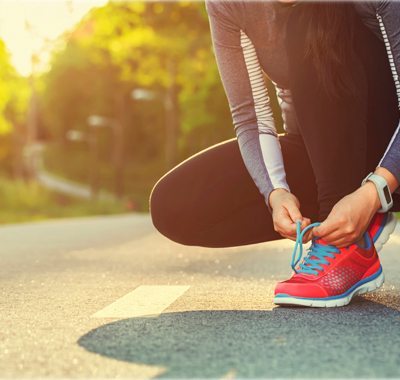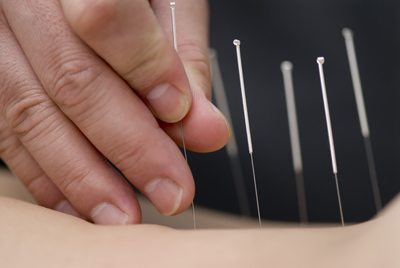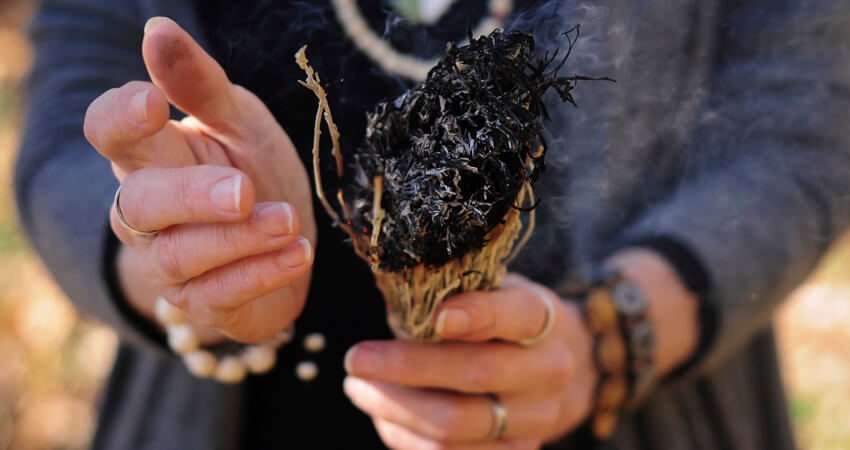
6 Ways to Boost Your Immune System—Naturally
Categories: Health & Healing
The immune system is having a moment—which makes sense, given the proliferation of antibiotic-resistant superbugs and the high-stress, low-sleep, on-the-go world we find ourselves living in. While purported one-and-done miracle cures abound, we at NAB think that taking a holistic, multi-pronged approach to rebooting your immune system is a more sustainable way to affect long-term positive change. Instead of implementing a vitamin regimen last-minute in the weeks before peak flu season, consider making the following changes that will not only help you fight off bugs like the flu and common cold, but boost your health and wellness overall.
Sleep Smarter

This one is a biggie: a recent study suggested sleep is one of the most important factors in predisposing you to the common cold. Proper sleep hygiene is essential to maintaining physical and mental health, and sufficient good-quality sleep ensures that your immune system is working its best.
When you’re low on sleep, your body is vulnerable to attack from pathogens that you’d otherwise be able to fight off. It’s during sleep that your brain signals to your body that it’s time to make and circulate the hormones and proteins necessary to keep your immune system in tip-top shape.
In a world where exhaustion is worn as a badge of honor and sign of grit—we all know someone who humblebrags about functioning on three hours of sleep—getting enough shut-eye means shifting your mentality and making a real commitment to yourself and your health.
Of course, we all know that it’s important; putting good sleep into practice is where we get tripped up. According to Timothy J. Sharp, author of The Good Sleep Guide, “achieving sleep requires making an effort and treating your sleep as a priority.” Framing sleep in this way helps you give it the same consideration you’d give to any other goal, like a new fitness regimen or healthy-eating plan. Establish small rules that yield big benefits, like banning screen time from the bedroom and using your bed just for sleep and sex. Develop a night-time routine to signal to your body that it’s time to wind down; mine is a lavender bath, melatonin gummy bears, and a slightly boring nonfiction book. Find what works for you and stick to it. Your immune system (and the rest of your body!) will thank you for it.
Natural Immune-Boosting Herbs
Take a stroll down the supplement aisle in any drugstore, and you’ll notice shelves upon shelves of dubiously-marketed remedies that claim to instantly overhaul your immune system. The immune system is complex; there’s no one miracle cure that’ll whip it into shape on demand. But there are some herbs we can vouch for, backed up by evidence-based studies and a wealth of historical and indigenous knowledge.
Annarósa Róbertsdóttir, author of Icelandic Herbs and Their Medicinal Uses, highlights bladderwrack, dandelion, and rosebay willow as excellent immune system supports. Bladderwrack, in particular, has been shown to have immunostimulating properties and is rich in minerals like iodine, magnesium, potassium, and calcium, all necessary to promote normal immune function.
According to Matthew Wood, lemongrass acts on the lymphatic system, making your body less inviting to pathogens. It also strengthens the tissues that serve as a barrier between your body and foreign invaders. Summer savory, in addition to being “one of the strongest essences” for enhancing immune function, has the added benefit of brain-stimulation. Elderberry and its derivatives like Sambucol have a long, well-documented record of antiviral and immunostimulating properties—in a 2002 study, Sambucol was shown to increase cytokine production, kicking the immune system into action.
Sometimes, despite the best-laid defense strategies, your immune system just can’t keep up. If that’s the case, check out our list of all-herbal flu-fighting remedies to find some relief. And if we’ve sold you on trying out an herbal remedy, we have a handy guide to DIY tinctures, and recommend investigating making your own teas, syrups, or other preparations.
Move More
 Finding motivation to get moving can be tough—among work, family, friends, and leisure, exercise might not reign at the top of your list of priorities. But regular exercise is key to the overall health and function of your body and mind. It gives you energy, gets you better and more restorative sleep, and secures a host of other benefits to your heart, brain, and overall health. Even non-cardio exercise can have significant effects on the immune system; the rhythmic, intentional breathwork and mind-body connection of yoga, for example, can possibly strengthen antiviral and immune system responses.
Finding motivation to get moving can be tough—among work, family, friends, and leisure, exercise might not reign at the top of your list of priorities. But regular exercise is key to the overall health and function of your body and mind. It gives you energy, gets you better and more restorative sleep, and secures a host of other benefits to your heart, brain, and overall health. Even non-cardio exercise can have significant effects on the immune system; the rhythmic, intentional breathwork and mind-body connection of yoga, for example, can possibly strengthen antiviral and immune system responses.
In research studies, moderate exercise has proven beneficial and “immuno-enhancing” for vulnerable populations like the elderly and those living with HIV/AIDS or other chronic conditions and allows for a better recovery. For adults, the CDC recommends 150 minutes of moderate exercise per week alongside strength training, but work with your doctor or healthcare provider to come up with a program that works for you.
High-Impact Whole Foods
What you eat (or don’t) unsurprisingly has a profound impact on your immune system and overall health and wellness. According to Healing with Whole Foods‘ Paul Pitchford, brown rice, chlorella, and aloe make great options for supplementing immune system function. Foods like spirulina, nuts, and seeds are high in GLA, or gamma-linolenic acid, a fatty acid with demonstrated immonomodulating properties that activates T-cells.
Healthy immune system function relies on maintaining a delicate balance of vitamins and minerals; when one is out of whack, it sets off a cascade of ill effects. While true malnourishment is relatively uncommon in the developed world, the standard American diet leaves much to be desired—too much processed sugar and junk food can leave you with a deficit of vital minerals, vitamins, and nutrients. We’re not suggesting you give up your favorite indulgences wholesale, but Pitchford notes that to build and maintain immunity, it’s important to emphasize “whole foods, choosing from a variety from a grain- and vegetable-based diet.”
Acupuncture
 Acupuncture, a cornerstone of traditional Chinese medicine (TCM), has been around for thousands of years and is used to treat everything from motion sickness to arthritis. Traditional knowledge holds—and recent studies support—that it can also have beneficial effects on the immune system (which is conceptualized differently in TCM).
Acupuncture, a cornerstone of traditional Chinese medicine (TCM), has been around for thousands of years and is used to treat everything from motion sickness to arthritis. Traditional knowledge holds—and recent studies support—that it can also have beneficial effects on the immune system (which is conceptualized differently in TCM).
Among patients being treated for sepsis, those in a control group who received standard treatment didn’t fare as well as those in an intervention group that received both standard treatment and supplemental acupuncture at the guanyuan and zusanli points. The researchers suggest that the level of improvement among members of the intervention group resulted from acupuncture’s ability to activate the immune system and fight off the infection. A 2016 study suggested that, among children with cerebral palsy, those that received supplemental acupuncture and moxibustion showed marked improvement in immune function from those in the control group. Robert Johns, author of The Art of Acupuncture Techniques, explains that “moxibustion fortifies the whole body… not only is [it] an effective form of treatment, it is important for preventative purposes and is a superb method of raising the body’s resistance.”
Listen To—and Honor—What Your Body is Trying to Tell You
Your body is a remarkable thing, and it’s evolved systems specifically to alert you when something isn’t right: so listen to it. Instead of forcing yourself out the door for a high-impact workout when you’re completely exhausted, go for something gentler like restorative yoga, or live to HIIT another day. Don’t try to put on a brave face at work and fight your way through a cold; the added stress you’re putting on your body when you should be resting can make recovery slower, longer, and more difficult—not to mention that you won’t get brownie points with your office-mates for showing up sick.
While moderate exercise is great for immune system function, too much can be a disaster. Common sense dictates that pushing it too far can leave you worn down and susceptible to illness, but research proves it too. The relationship between exercise and immunity follows a J-curve: you’re at risk of catching a bug if you’re sedentary, much better able to protect yourself against it if you’re exercising moderately, and at the highest risk when you’ve exhausted yourself from overexertion and left your defenses down.
This same principle applies to emotional wellness and mental health, too: listen to your brain when it’s telling you that it’s had enough or needs to take a break. Stress is toxic, wreaking havoc on everything from your emotional resilience to your ability to fight off the flu. Traditional cultures the world over have long recognized the relationship between body and mind; it should come to no surprise that controlled, evidence-based scientific studies back this connection up. There’s even a field of psychology specifically dedicated to understanding the link between psychological stress and the immune system: psychoneuroimmunology. So if you’ve been holding down 60-hour workweeks, neglecting self-care to put others first, or experiencing any kind of acute stress, slow down, honor what you need, and take a break, whatever that looks like for you. Try mindfulness meditation for a few minutes every day (proven to positively affect the immune system), get out into nature, reconnect with an old friend, or curl up with your pet and a good book to check out of the world for a while.
Disclaimer: Always check with your doctor or healthcare provider before taking any vitamins, supplements, or herbs. This article is intended for informational purposes only and is not a substitute for qualified medical evaluation and treatment.
Tags: Alternative & Integrative Therapies Chinese Medicine & Acupuncture Herbalism


